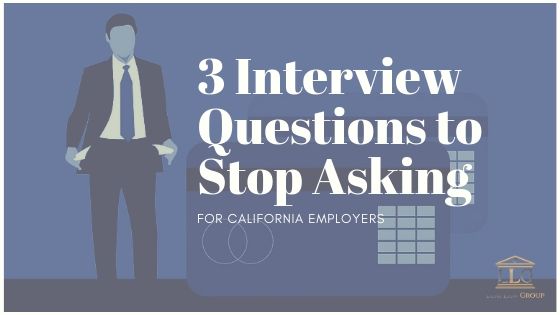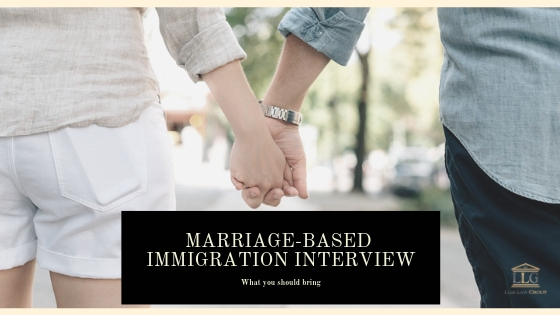California Business Owners: Stop Asking These Interview Questions!
If you’re a small business owner who isn’t accustomed to hiring, you’re probably unaware that many of the common interview questions from “back in the day” are now illegal to ask in California. We’ve divided this article into two sections: the three questions you need to stop asking now, and the three questions you should’ve stopped asking yesterday. Read on for how you can protect your business from employment discrimination claims.
Stop Asking These Questions Today!
1. “What are you making now?” Or, “How much were you making at your previous position?”
Remember when job ads would require a “five year salary history” in the cover letter? Those days are gone in California.
Previously, hiring managers might ask how much a job candidate was making, or is currently making, and decide which candidate would be the “cheapest” to hire. Hiring managers may also offer different compensation packages based on current or prior salary history. As a result, if there was a wage gap between men and women, that wage gap was further increased with each new job offer.
California passed AB168 in 2017, which went into effect January of 2018, prohibiting employers from asking for a “salary history” or inquire how much a candidate is or was making at a previous position.
Note: If a potential hire reasonably requests a “pay scale“, you are required to provide it. AB2282 clarifies that a pay scale is a salary or hourly wage for the open job position and does not have to include bonuses or other benefits.
2. “Have you ever been convicted of a crime?” or “Check here if you have criminal convictions.”
Gone are the days of asking an applicant about their criminal history at the interview. California requires employers to discover any criminal history in the background check process. The bill, AB1008 was signed into effect in 2017 following the lead of San Francisco and Los Angeles cities, banning employers with five employees or more from asking about a candidate’s criminal history on job applications.
You don’t begin the background check process until after you have extended an offer of employment. You cannot run a background check before offering the position to the candidate. If the background check results prevent you from hiring the candidate, you are required to follow these steps:
- Inform the candidate of the results and explain why you’re rescinding the offer.
- Provide a copy of the background check report (if available).
- Allow the candidate five (5) days to respond and defend themselves.
- If the candidate responds to the decision, you are to wait five (5) more days to consider his or her defense.
Note: The exception to the rule are employers who run medical facilities and hire employees who have access to drugs.
3. “How’s your credit score?” Or, “Will you consent to sharing your credit report?”
Where previously potential employers could obtain an applicant’s credit information as part of the on-boarding process, California now limits it to certain occupations. You can no longer slip in credit consent forms into the offer package, nor can you judge a candidate’s hire-ability based on their credit report.
California limits the use of credit history in employment decisions, but does not outlaw it. The following are exceptions to the rule:
- Department of Justice employees
- Managerial position
- Peace officer or Law enforcement officer
- Any position wherein a credit check is required by law
- Position wherein an employee would regularly access credit card information
- Position where an employee is a signatory for an employer’s bank or credit card account, or authorized to transfer funds
- Position that involves access to confidential or proprietary information
- Position that involves access to $10,000 or more of cash.
Are you not sure what you can ask now? Do you have questions about your job description? Contact us today!












